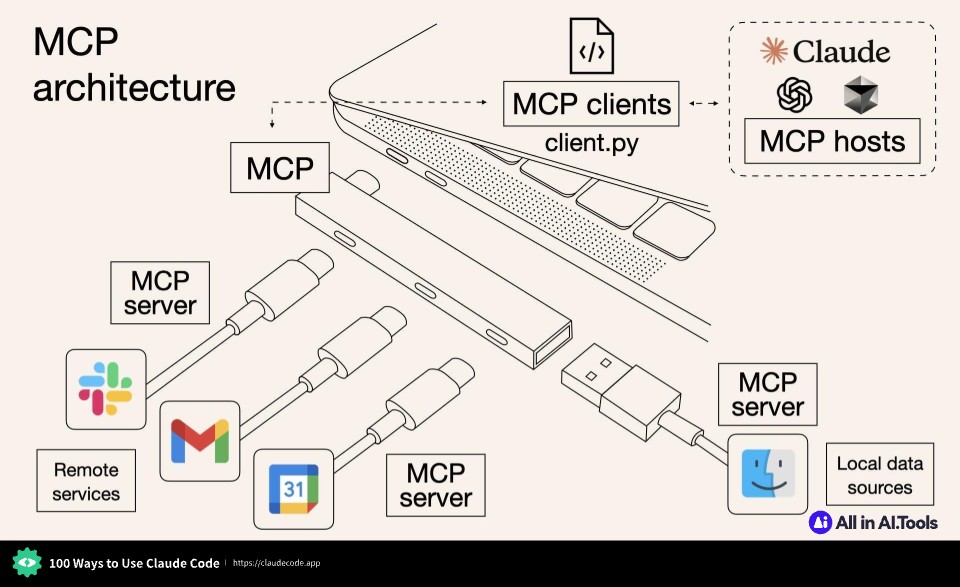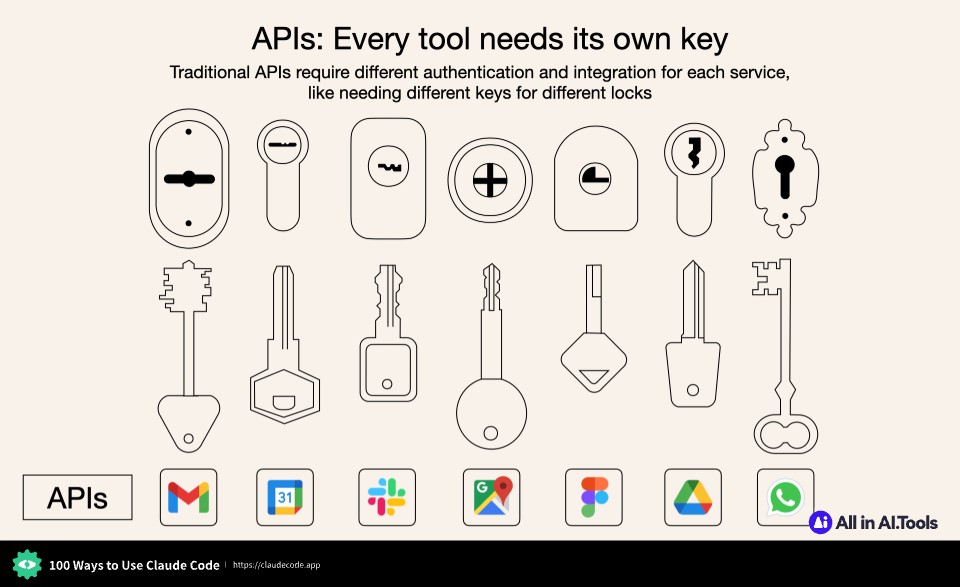Discover and integrate MCP servers to extend Claude's capabilities
A Model Context Protocol (MCP) server that enables AI assistants to perform web searches using SearXNG, a privacy-respecting metasearch engine.
The google calendar MCP (Model Context Protocol) for Claude
Figma MCP Server with full API functionality
A server that helps people access and query data in databases using the Legion Query Runner with Model Context Protocol (MCP) in Python.
HTTP-4-MCP configuration tool allows you to easily convert HTTP API to MCP tool without writing code. With simple interface operations, you can quickly configure an mcp-server.
マナリンクのModel Context Protocol (MCP) サーバー実装です。AIアシスタントが先生検索などの機能を利用できるようにします(トライアル実装です)
A MCP server to allow the LLM in Cursor to access Rust Analyzer, Crate Docs and Cargo Commands.
A Model Context Protocol server that provides desktop automation capabilities using RobotJS and screenshot capabilities
A MCP server for interacting with Taiga Project Manager
MCP Server Semgrep is a [Model Context Protocol](https://modelcontextprotocol.io) compliant server that integrates the powerful Semgrep static analysis tool with AI assistants like Anthropic Claude. It enables advanced code analysis, security vulnerability detection, and code quality improvements directly through a conversational interface.
Node.js Model Context Protocol (MCP) server providing secure, relative filesystem access for AI agents like Cline/Claude.
An update version of qgis_mcp from jjsantos01/qgis_mcp repository
Full implementation of Todoist Rest API & support Todoist Sync API for MCP server
MCP server for OpenRouter providing text chat and image analysis tools
MCP Server for Microsoft Dynamics 365
🗂️ A Model Context Protocol (MCP) server that provides integration with Turso databases for LLMs. This server implements a two-level authentication system to handle both organization-level and database-level operations, making it easy to manage and query Turso databases directly from LLMs.
Analyze user input to identify suitable design patterns and project templates. Orchestrate the project, creating initial files from templates.
Cursor Talk To Figma MCP
MCP Server for creating/editing recipes in Paprika 3 with natural language
MCP Server for the Slidespeak API. Create PowerPoint Presentations using MCP.
Tools for seamless integration of different systems and services.
Cloud infrastructure and deployment management tools.
AI-powered tools for creative design workflows across 3D and 2D mediums.
AI-powered tools for product development, design review, and performance monitoring.
Tools for monitoring, analytics, and operational efficiency.


Explore Claude Cowork, Anthropic's groundbreaking AI agent built on Claude Code foundations. Discover how it enables file access, document creation, and task automation for everyone—not just developers. Learn how it integrates with MCP servers and extends Claude Code capabilities.
Explore the major [Claude code](https://claudecode.app) 2.1.1 update featuring 109 CLI improvements, automatic hot reload for skills, sub-agent execution, enhanced security, performance optimizations, and smarter prompt behavior. Learn about all the new features and improvements.
Master the art of prompting Claude with Anthropic official guide. Learn 10 proven strategies to 10x your Claude Opus and Sonnet 4.5 performance. Discover how better prompts lead to better results with practical examples and real-world applications.
Deep dive into sophisticated SSH workflows for Claude Code power users. Learn zero-friction authentication, session management, and advanced techniques that transform your vibe coding experience.
MCP (Model Context Protocol) is an open protocol that standardizes how applications provide context to LLMs. Think of MCP like a USB-C port for AI applications, providing a standardized way to connect AI models to different data sources and tools.
MCP Servers are lightweight programs that expose specific capabilities through the standardized Model Context Protocol. They act as bridges between LLMs like Claude and various data sources or services, allowing secure access to files, databases, APIs, and other resources.
MCP Servers follow a client-server architecture where a host application (like Claude Desktop) connects to multiple servers. Each server provides specific functionality through standardized endpoints and protocols, enabling Claude to access data and perform actions through the standardized protocol.
Yes, MCP Servers are designed with security in mind. They run locally with explicit configuration and permissions, require user approval for actions, and include built-in security features to prevent unauthorized access and ensure data privacy.